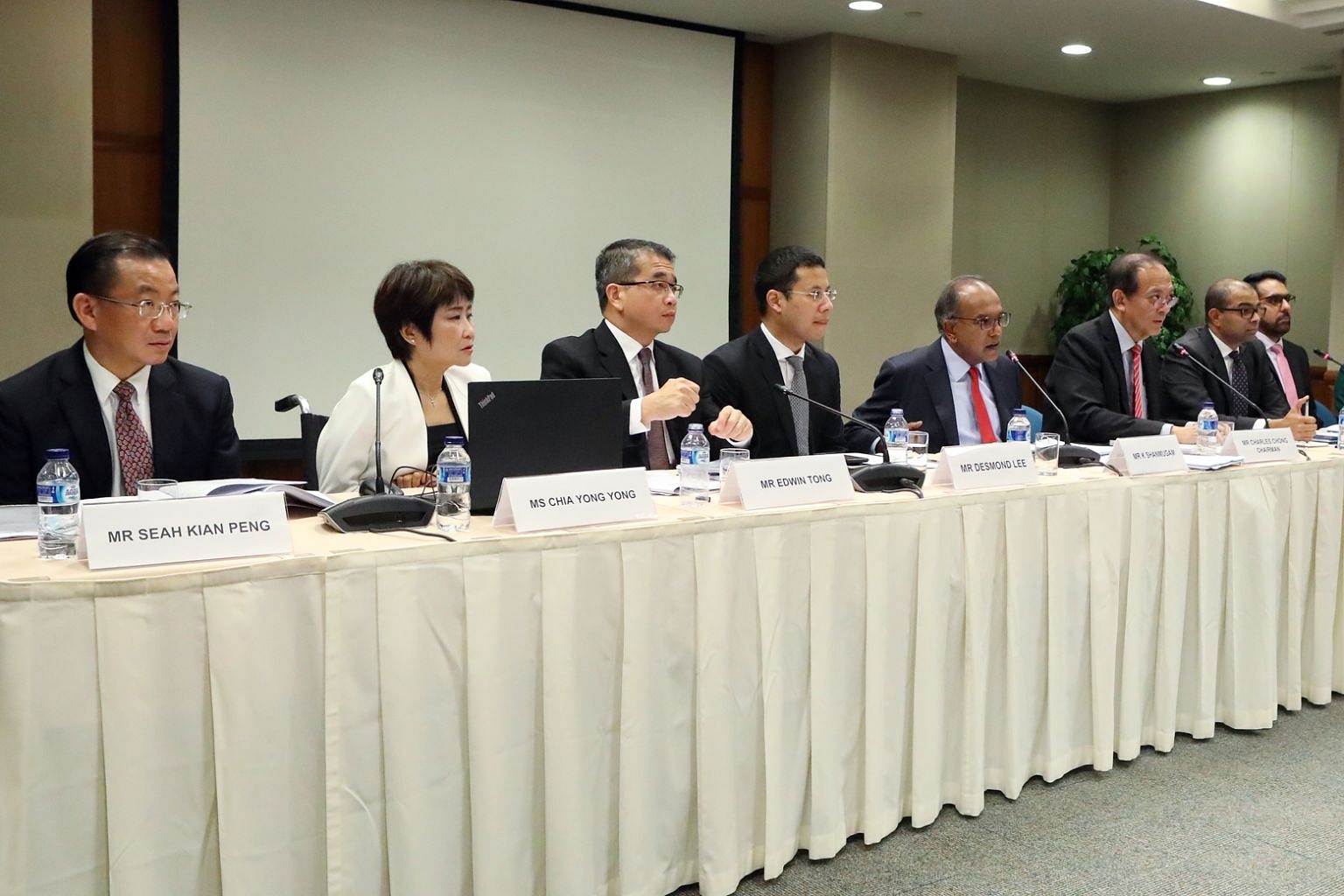Select Committee on fake news: Singapore needs to draw up national strategy to counter state-sponsored operations
Sign up now: Get ST's newsletters delivered to your inbox

The Select Committee on Deliberate Online Falsehoods said in its report that "state-sponsored disinformation operations" must be effectively dealt with to safeguard the Republic's sovereignty and security.
PHOTO: LIANHE ZAOBAO
Yasmine Yahya
Follow topic:
SINGAPORE - A national strategy should be drawn up by the Government to combat fake news operations run by foreign operators, a parliamentary Select Committee has suggested.
The Select Committee on Deliberate Online Falsehoods said in its report, made public on Thursday (Sept 20), that "state-sponsored disinformation operations" must be effectively dealt with to safeguard the Republic's sovereignty and security.
The Government should thus study the specific countermeasures proposed by experts who submitted their views and gave evidence to the committee, and come up with a national-level strategy and coordinated approach for countering state-sponsored disinformation operations, it said.
The committee warned that deliberate online falsehoods can be used to violate national sovereignty.
It provided three key observations on deliberate online falsehoods in relation to Singapore: That foreign disinformation has likely occurred and can be expected to take place here, that the Republic's societal conditions are fertile ground for "slow-drip" falsehoods that can cause long-term damage, and regional circumstances can contribute to Singapore's vulnerability to falsehoods.
The committee said it has received evidence clearly suggesting that "a range of state and non-state actors" are engaging in disinformation operations here, and that such operators have used online news articles and social media to influence Singaporeans and legitimise another state's international actions.
The committee learnt from American technology company F5 Networks and its data partner Loryka that Singapore was the top cyber-attack target around the world when it hosted the summit between United States President Donald Trump and North Korean leader Kim Jong Un.
During the summit, Singapore experienced close to 40,000 attacks, it said, with 88 per cent of attacks launched from "a particular foreign state".
The recent hacking of SingHealth's databases, which led to the theft of the private data of 1.5 million patients, is also an indicator of the threat the Republic faces, the committee added.
"Both disinformation and cyber attacks are part of a spectrum of non-military tools commonly used in information warfare."
Indeed, the committee noted, information warfare against Singapore is a more attractive strategy than conventional warfare, as the Republic's digital connectedness allows foreign actors easy reach to wide segments of Singapore's population.
There are also "cyber armies" that have been deployed to aid sectarian or political agendas in several neighbouring countries, which can easily be repurposed and deployed against Singapore, it said.
"Neighbouring countries are seeing a rise in the use of disinformation capabilities, such as for-profit syndicates, bot armies and 'data-driven political consultants' with expertise in using data analytics to micro-target messages at susceptible people," it added.
"The techniques used can be sharpened for the local context, and turned against Singapore."
The committee also noted that Singapore's diverse society provides fertile ground for insidious "slow drip" falsehoods to cause longer-term damage to society that may not always be visible, until too late.
These "low-level" falsehoods, which could be about a particular ethnic, religious or immigrant group, could raise tensions little by little - emotions may not be high initially, but falsehoods could make them stronger, it said.
Singapore is also vulnerable because of regional conflicts which lead to tensions that spill over into the Republic, the committee added.
For example, it noted that when local media outlets reported on the Rohingya humanitarian crisis in Myanmar, comments were posted on their social media pages refuting their reports.
"These denials appeared to come from Myanmar-based user accounts, and were accompanied by comments with Islamophobic overtones, triggering backlash from accounts that appeared to belong to Singaporean Muslim users," the committee said.
One clear theme which emerged from the expert evidence it received is that the "visible hand" of the state is needed to fight fake news, it added.
And governments have successfully employed this "visible hand" to counter disinformation operations, it noted.
According to one commentator who gave evidence to the committee, France managed to successfully withstand the alleged onslaught of state-sponsored disinformation and interference during the 2017 French presidential election because of the determined and coordinated efforts of the French government.
Prior to the election, a number of key French government agencies had reportedly cooperated to implement a unified strategy to counter anticipated disinformation operations or cyber attacks from hostile sources, engaging in pre-emptive measures such as offering practical advice to presidential candidates, and reducing the use of vulnerable technological products for and during the election.
"This reportedly ensured that certain presidential candidates and also the general public were well-prepared for such attacks, minimising the impact these attacks eventually had on French voters," the committee said.

